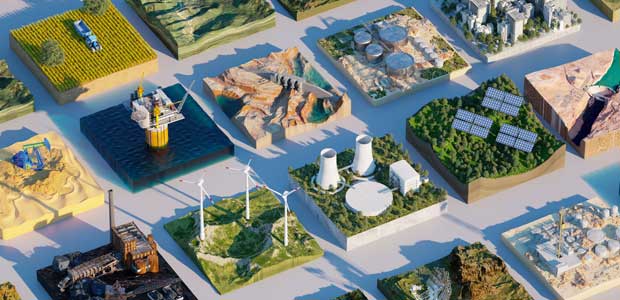Project financing remains problematic for Chile’s growing desalination sector
As the effects of climate change worsen, the number of proposals to build new desalination plants in Chile have increased and the government is working on legislation to better regulate the sector, Carlos Foxley, president of the Chilean Association of Desalination (ACADES) told Infralogic.
The study done by the organization together with Valparaíso University notes the number of desalination plants being built should increase because of higher demand for fresh water and the need to increase its availability across the country.
"This is a trend that has been going on for several years. (For example), the mining industry in the northern region is starting to use desalinated water, and to do that, it must build pipelines measuring hundreds of kilometers to bring water from the coast and additional pipelines to bring it to the Andes Mountains," Foxley said. Right now, 80% of the water used in the mining industry is desalinated water, he added.
In 2023, for instance, two industrial desalination plants will start operations. The first is the Quebrada Blanca desalination plant in the Tarapacá region and the second will serve the Los Pelambres Mine. By 2025, there will be a third desalination plant serving the Doña Inés de Collahuasi Mine.
Parallel to developing desalination plants for industrial uses like mining, Foxley said the number of desalination plants that produce potable water has increased because of dwindling water resources resulting from climate change. He noted that residents in the center of Chile, where 50% of the population lives, have been "enduring a drought for the past 15 years" that has made it difficult to get water from rivers or underground wells. The worst affected regions are Coquimbó, Valparaiso and O'Higgins, he said.
In December 2021, the government's Empresa Concesionaria de Servicios Sanitarios (ECONSSA) transferred a USD 250m desalination plant it had built to a private concessionaire known as Nueva Atacama, a firm co-controlled by local fund manager Toesca and Aguas Nuevas, a subsidiary of the Japanese Marubeni Corporation. The plant provides water to Caldera, Chañaral, Copiapó and Tierra Amarilla.
Recently, Aguas Antofagasta, a Chilean subsidiary of Colombian public utility Grupo EPM, announced USD 130m in investments for a plant. Foxley said that initiative would help provide water to Mejillones in three years. "This is a state asset under concession," he said.
Econssa General Manager Patricio Herrera said the state-backed firm built the plant entirely with public funds before transferring it to the private sector. "The essential problem with those desalination projects linked to drinking water is that, according to the model, they must be carried out by private operators who must recover their investment through tariffs. Such a situation is possible when the investments have a marginal effect, which is not the case with desalination plants. Therefore, it is one of the issues that the government should aim to resolve soon," he said in written remarks to Infralogic.
Upcoming projects
While the government's 2022-2026 Concession Plan lists only two desalination plants; the Desalination Plant for the Region of Coquimbo slated to go out to tender in 2025 and the Rancagua Desalination Plant, out to tender in 2026, Foxley said the private sector is developing the lion's share of desalination plants.
French utility company Électricité France (EDF) is proposing the "Proyecto Azul" (Blue Project), an energy production and desalination plant for both industrial clients and the general population. Foxley said the project would produce 1,200 liters per second of desalinated water in Coquimbo. EDF declined to comment for this piece.
A firm called Desala is proposing a desalination plant that would produce 1,000 liters per second of water in Valparaiso. The plant will serve the public and the industry, Foxley said. "They have letters of intent, and it is in development," Foxley said.
Desala did not answer requests for comment.
Valparaíso is also the region for the proposed Aconcagua Project, a desalination plant that will produce 1,000 liters of water for industries and public use near Quintero Bay. The project, owned by Aguas Pacífico, a subsidiary of Brazilian investor Pátria Investimentos, is slated to start construction this year, Foxley said. The firm declined to comment.
A company called Trends Industrial is proposing Enapac, a USD 500m desalination plant in the Atacama region that will also serve a diverse clientele. The proposed plant is slated to produce 2,000 liters per second of desalinated water, Foxley said. Trends Industrial did not answer requests for comment.
Aguas del Valle is planning to resubmit to the Environmental Evaluation Service (SEA) plans for a USD 181m desalination plant for the cities of La Serena and Coquimbo. "The project was rejected, but they will submit it again," Foxley said. Aguas del Valle did not answer requests for comment.
Meanwhile, Aguas Nuevas, which already operates the Nueva Atacama plant, is proposing developing two desalination plants in the cities of Arica and Iquique in northern Chile. Aguas Nuevas did not answer requests for comment.
"Not all of these desalination plants for Atacama may be finally constructed, but the one that completes the environmental impact statement, will probably be the one that advances," Foxley said.
Challenges ahead
Despite the surge in interest in developing desalination plants, officials said the permitting process remains slow. "The main challenge in the desalination industry in Chile consists of two topics: how to achieve regulatory adjustments to avoid prolonged transaction times that result in a project taking up to eight years to complete. The second is achieving a business model that makes it viable to have desalinated water for farming and drinking," Econssa General Manager Patricio Herrera said in written remarks to Infralogic.
An executive at Toesca, who did not wish to be named, said the main challenge at the early stages of a desalination project’s life is obtaining the maritime and environmental permits and all the needed easements in a reasonable amount of time.
The government has in the Senate proposed legislation to regulate desalination plants and create concessions for the industry.
Foxley said the bill 450-369 would create concessions designed for desalinization plants, whereas currently the model is the same as for maritime port concessions. "This will provide more certainty, and that is why we are contributing to this bill," he said.
Herrera said the bill is a good start but requires amendments and needs to be complemented with materials related to maritime concessions, the legal condition of the desalinated water, planning and environmental areas.
Earlier this year, Chilean President Gabriel Boric expressed concern about desalination plants because they generate brine that is thrown back into the ocean and could impact marine life. Foxley said desalination plants can only be built in some places and require certain specifications. But he noted that environmental concerns can be addressed in a transparent process that relies on community participation.
Boric’s administration, which did not answer requests for comment, proposed the creation of water councils for each of the country's regions to deal with water shortages and is also evaluating the proposed Senate legislation.
Foxley noted that banks, for the most part, are interested in financing desalination plants that have permits and guarantee returns on investments. In addition, he noted that institutions like the World Bank and CAF are open to financing this type of project.
"In Chile, these projects are guaranteed by regulated tariffs or, in the case of industrial ones, by the concessionaire. There are mining companies that have great credit ratings. The multipurpose desalination plants or those built by small firms are the ones that have more trouble getting financing," Foxley said.
The Toesca executive agreed. "I would say the main challenge is to have signed take or pay contracts with off-takers that have a good credit risk to make the operation bankable.”
In that regard, Foxley said his Association is speaking with the government to see if it can provide guarantees on the expected return of investment. "That is what the government does right now when it authorizes concessions," he said. “Unfortunately, the proposed bill for desalination plants does not contain dispositions for the government to serve as a guarantor.”
David Tinel, International Finance Corporation (IFC) Country Manager for Argentina, Chile, Paraguay, and Uruguay, confirmed the World Bank's interest in supporting the construction of desalination plants.
"We are indeed interested in supporting desalination projects as an important measure to assist Chile in adapting to water shortages caused by recent extended multi-year droughts," he said in a written statement to Infralogic.
Chile's Banco Bice, in response to a question from Infralogic, said it has a project finance program that provides financing for highways, transmission lines, and airports that also finances desalination plants.
CAF did not answer requests for comments.










